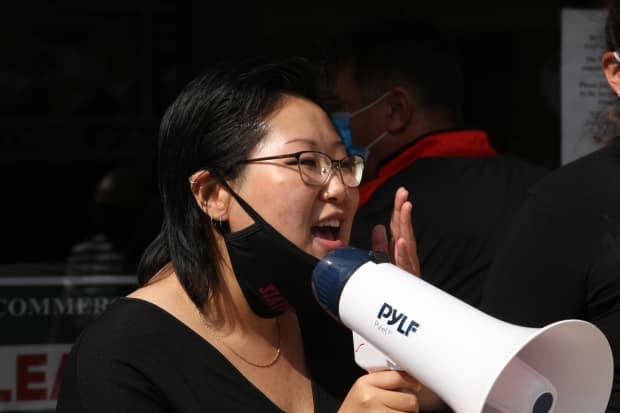Ontario colleges' reliance on international student tuition 'a risky formula,' auditor general warns

Ontario colleges increasingly depend on high international student tuition fees to stay afloat, a "risky formula" that could jeopardize their long-term survival, according to a new report from the province's auditor general.
Across 24 public colleges — not to be confused with the province's university system — 68 per cent of all tuition fee revenue comes from international students, the majority from India, said the report released earlier this week. International students pay on average $14,306 in annual tuition fees, compared to just over $3,000 for domestic students.
"That puts these institutions in a precarious position, should students decide to go elsewhere, or are no longer able to come to Canada to study," said Auditor General Bonnie Lysyk in a statement Wednesday.
Northern College in Timmins, Ont. topped the list, with international tuition fees accounting for 92 per cent.of total tuition revenue in the last school year. In the Toronto-area, Centennial College relied the most on international tuition fees, comprising more than 80 per cent of its tuition revenue since 2018, followed by Seneca College at 68 per cent.
Tuition has become colleges' largest source of revenue in recent years, totalling $2.5 billion, and surpassing the $1.9 billion available in government grants.

Centennial said in a statement to CBC News it would not be financially viable to run without revenues from international enrolment, which is down significantly this year due to the ongoing global impacts of the pandemic.
Seneca pointed CBC News to its response, given along with three other colleges, included in the report.
"At the heart of the issue of the growth of international enrolment is chronic and historical under-funding by the provincial government," the response says.
It noted the auditor general's finding that Ontario provides the lowest amount of funding for full-time domestic students of all Canadian provinces.
The Ministry of Colleges and Universities said it will review the report's recommendations and is "committed to supporting a more innovative, sustainable and responsive post-secondary education system."
Pandemic exposes colleges' vulnerability
Colleges Ontario president and CEO Linda Franklin said the report didn't come as a surprise to anyone working in the sector. For years, domestic student enrolment has declined alongside provincial funding, and colleges have turned to recruiting international students to bridge that gap, she said.
The pandemic and accompanying travel restrictions underscore how vulnerable Ontario colleges are to unexpected global events, said Franklin.
"We are doing what we can to diversify the number of countries that we're drawing international students from," she said.
"It doesn't really help when you have a pandemic, but for other crises that might be country specific, it might help take out some of that vulnerability."
Colleges are also pushing for the province to provide more long-term funding, she said.
"The college system is so critical to meeting the labour market needs of the province and it gives us such a leg up internationally."
'Extremely high tuition fees'
Sarom Roh is an organizer with the Migrant Workers Alliance For Change, a group that advocates for international students' rights. She said the report emphasized Ontario's "bait and switch" college system.
"What we're seeing here is a complete cash grab that targets racialized, poor and working class families around the world," Roh said.
International students pay "extremely high tuition fees" hoping they'll eventually get permanent residency after they graduate and if they get a job in their field, she added.

But in the meantime under their temporary study visa, they're permitted to work only 20 hours a week, putting them in "impossible conditions."
"They can't afford to pay for tuition and living expenses with just 20 of work," Roh said.
"They are sometimes working for cash and employers take advantage by paying far below minimum wage."
She said the system could be fairer if Canada allowed international students to become permanent residents when enrolled in a college, and for colleges to get more funding from the province.


